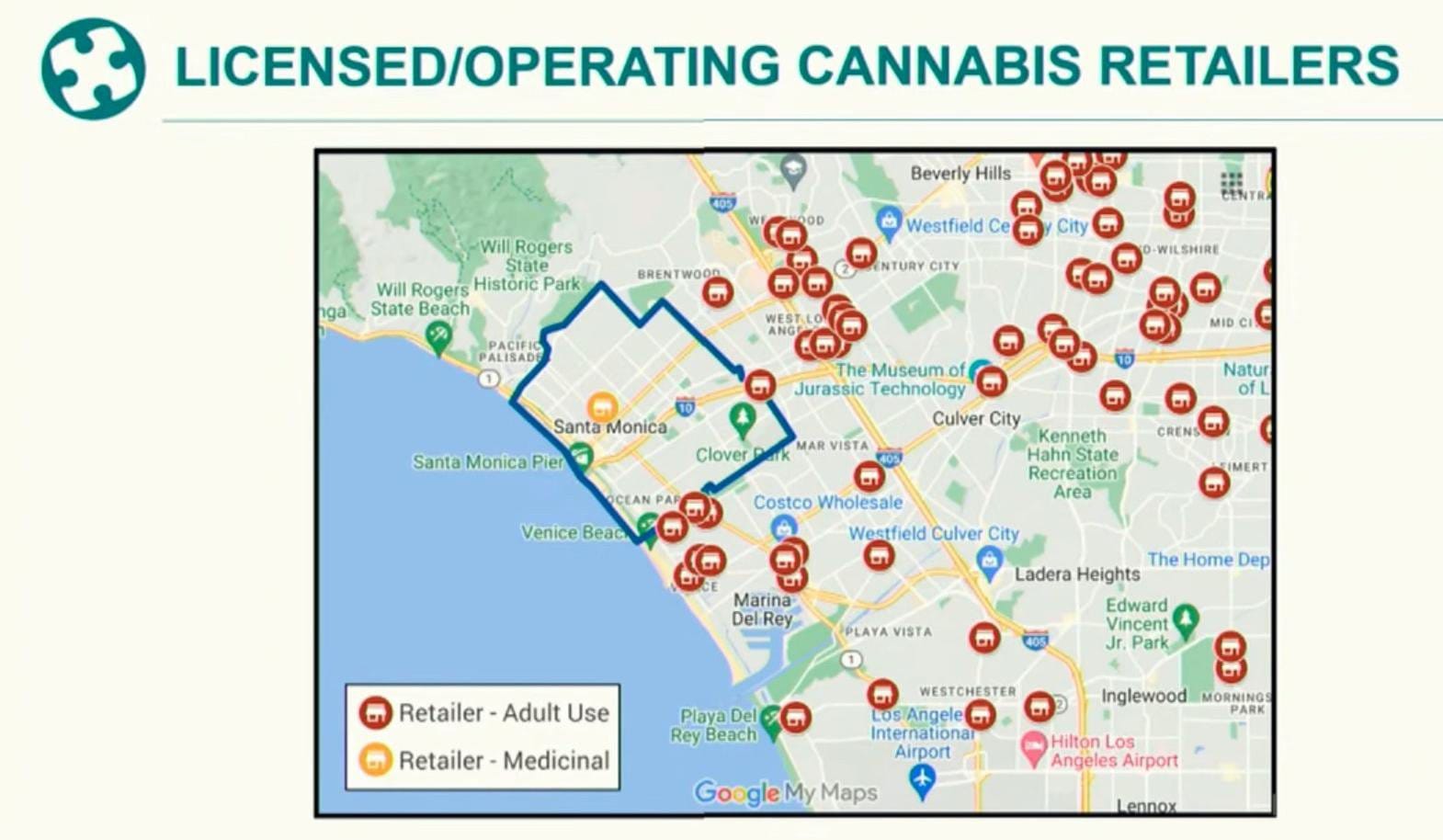Seven weeks and two days after Council voted to approve changes to the City’s zoning code, recreational cannabis will be available for the very first time in the city of Santa Monica this week.
The first marijuana dispensary actually opened in the city of Santa Monica back in June, more than a year and a half after the permit was granted in October 2021, six years after the application was requested in December 2017 and over 26 years since medical marijuana was made legal in the state of California.
Called the Local Cannabis Company, it’s located at 925 Wilshire Blvd and there will be an opening ceremony of sorts on the morning of Thursday, December 14. At the time of writing, a ribbon cutting ceremony was in the process of being planned.
"The store is going to carry every major brand in the cannabis industry. We have 33 parking spots out back and plenty of access points for public transportation," Howard Keum, Co-Founder and CEO of Calyx Peak, the parent company of the Local Cannabis Company told the Daily Press, adding, "We’re going to be opening up at 10 a.m. on Thursday for the official launch and we’ll have giveaways for customers, goodie bags, first time discounts and brand promotions over the whole weekend, plus if there’s a brand you like that we don’t have, we’ll try and order it in."
Per the previous Santa Monica municipal code, only two dispensaries were allowed in the city and they are limited to medical use only, which means that customers will be required to have a doctor’s recommendation to purchase products. A second dispensary, Harvest of Santa Monica, which was set to be situated at 1416 Wilshire Blvd was also approved, in January 2022, but that hasn’t materialized yet
During the October meeting it was mentioned that the Local Cannabis Company — the only dispensary in Santa Monica — was losing the interest of the majority of walk-in customers who, upon learning they need to apply for a medical card, simply leave without purchasing anything.

"Since we’ve opened, we’ve only had about a 20% conversion rate. I think it’s closer to 10%, but you can see how far off that is, it’s people just not wanting to wait," Erin Carachilo, CEO of Calyx Peak, told the Daily Press back in June.
"We have approximately $3million invested so far," Keum said. "It caught us off guard on how long the process took. We have done everything that we said we would regarding opening on time … And we’ve done everything to comply with the city, the permitting process, the construction, so we did all of that."
"Was I disappointed with how long it took? Yes, but we were working through the issues of the appeals process, we were working through COVID, during that shutdown, and after all is said and done, it took a lot to open and we had to work under the medical only program, but now we’re able to move forward," Keum said.
"When the industry expands, the ability for the city to benefit from taxation depends on a well run cannabis business industry being operated here. In order for us to have a fighting chance to be able to provide the tax dollars the city wants, we also have to be profitable. And so far, over the last six years we have been formally unprofitable."
However, the recently amended ordinance that has allowed this to take place is set to expire on February 12, 2024. In the Council meeting scheduled for Tuesday, December 12, City Staff will propose an extension of the interim zoning regulations that would continue until February 12, 2026.
According to the City Staff report, of over 11,000 Department of Cannabis Control (DCC) business licenses in California, 1,360 are for medicinal cannabis only (12%). The rest are for either adult-use or for both medicinal and adult-use. Among the state’s 1,891 retailers (including microbusinesses) only 31 are licensed for just medicinal cannabis sales.
Medicinal cannabis is estimated to make up only around 9% of cannabis retail sales in California. The primary advantage for consumers to purchase cannabis through the medicinal market is an exemption from regular sales tax, however, this is only for those qualifying patients who present a Medical Marijuana Identification Card (MMIC) at the time of purchase (a savings of 7.25% to 10.25%, depending on the jurisdiction). The small number of patients with valid MMIC cards makes their impact on tax revenues statistically insignificant. Expanding adult-use cannabis retail in the City can also help with economic recovery efforts.

